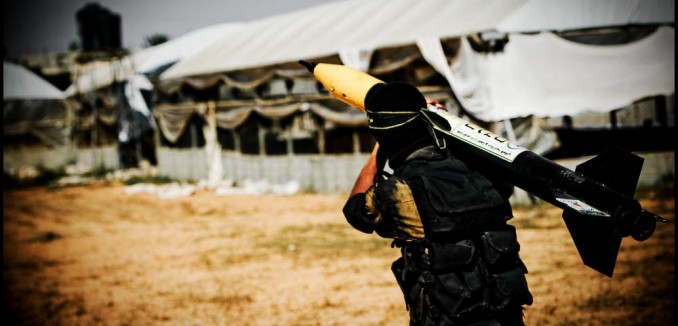Iran’s Islamic Revolutionary Guard Corps (IRGC) aim to enhance its control over two of its proxies in the Middle East, an Arabic magazine reported. The new strategic plan of the IRGC includes plans to transfer the decision-making from local figures in each area to the IRGC’s elite Quds Force.
Al-Watan Al-Arabi reported (Arabic link) that the plan received the blessing of Iranian Supreme Leader Ayatollah Ali Khamenei. The initiator of the plan, Gen. Qassem Soleimani, is commander of the al-Quds Force that is estimated to be several thousand strong. The Quds Force carries out a range of highly sensitive functions: intelligence, special operations, arms smuggling, and political actions—anything that constitutes protecting Iran’s Islamic Revolution or attacking its enemies, especially Israel.
Soleimani decided to implement the plan beginning with Hamas’s Izz al-Din al-Qassam Brigades in Gaza. He ordered the transfer of an annual budget to go directly to the Hamas field commanders to facilitate its control of the Gaza Strip. Iran implements the same plan among the Shiite Houthi rebels in Yemen, who stormed the capital Sanaa and seized control after bloody fighting.
The direct transfers to the military in Gaza and Yemen gives Iran greater control over events on the ground in both locations as part of Tehran’s regional expansion.
Soleimani assigned the task of direct contacts with the al-Qassam Brigades’ leadership to two high-ranking officers in the Quds Force. Their task will be to examine the needs of the armed militants regarding training courses, ammunition, and weapons for use against Israel.
Through this program, Iran wants to send a message to the Palestinian people, saying that the Palestinian issue is still a top priority for Tehran. In addition, the direct funding means more control by Iran over its activities as a kind of punishment imposed on Hamas, for its failure to support the regime of Bashar al-Assad in Syria.
Iran is still angry at some Hamas leaders over statements made during the military operation in Gaza last summer, when Hamas preferred to emphasize the support it was receiving from Turkey and Qatar, publicly snubbing Iran’s documented support.
This report is consistent with news from December that Iran hosted a conference to strengthen the Shiite axis in the Middle East. Though Hamas is a Sunni organization, it also had representatives at that meeting. Yesterday, it was reported that Iran-backed militias have been gaining a significant foothold in the Iraqi army.
[Photo: Zoriah / Flickr]




